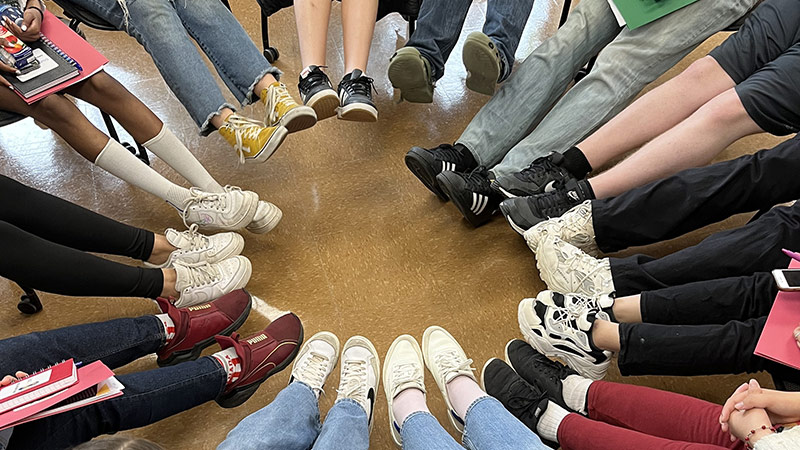The “GlobalChild” Child Advisory Board meet with UN Special Rapporteur
Author: Kathleen McLaughlin
Posted on Apr 10, 2024
Category: UNB Saint John

This past Saturday, April 6, saw the University of New Brunswick’s (UNB) GlobalChild team and their Child Advisory Board (CAB) engage in an important meeting with a United Nations (UN) Special Rapporteur.
Mama Fatima Singhateh from Gambia, the Special Rapporteur (UNSPR) on the sale, sexual exploitation and sexual abuse of children, met virtually with GlobalChild and CAB to engage in a larger conversation on the digital world and artificial intelligence (AI), and their impact on child rights with a particular focus on child protection from sexual exploitation and sexual abuse.
“We need to understand and learn from children, first-hand, about their experiences in this environment,” said Dr. Ziba Vaghri, director of the GlobalChild Program of Research at UNB. “This is a prerequisite for any intervention in policy development and will better position us to protect them.”
The GlobalChild Program of Research is a vibrant program of research based on UNB’s Saint John campus, with far-reaching partnerships with international universities and a long-standing history of work with UN agencies. The CAB is an entity within the GlobalChild Program of Research comprised of 14 children from New Brunswick between the ages of 11 and 17 years old.
CAB has previously engaged in topics relevant to ongoing GlobalChild projects, including CORE: Children’s Opinions on their Rights in the E-World, under the UN Convention on the Rights of the Child (CRC), a project conducted by Shiva Joudaki, one of Dr. Vaghri’s graduate students.
The purpose of the meeting was for the Special Rapporteur to listen to children's perspectives on the issues related to the digital environment, as well as reinforce their right to participation, one of the core human rights of children under Article 12 of United Nations Convention on the Rights of the Child (CRC).
Key topics during the meeting included challenges Canadian children face due to AI and digital technologies, CAB's experiences with online content and their knowledge of seeking help in exploitation cases.
“Kids should know how to use online safety resources like VPN and using end to end encryption chats, so their information doesn’t get leaked,” said one of the CAB youth members. “They should also understand the dangers of connecting to public Wi-Fi and how that can be used against them.”
“School can be a great resource [for protection against sexual exploitation or counselling of the victims] and even though counsellors are in schools, information on how to access them is not widely available,” added another CAB member. “The counsellor’s contact information should be passed around and put in places where it can be easily accessed by kids.”
The CAB members of the GlobalChild program are the first cohort of Canadian children provided such an opportunity with the UNSPR. Their input, along with that of children from other countries, will help the UNSPR and her team identify common concerns expressed and solutions proposed by children, and make recommendations to the United Nations General Assembly regarding the protection of children within the digital world.
“The UN Rapporteur's involvement with this is a recognition of the fact that while the digital era brings many advantages, it exposes children and adults to some risk as well. We need to mitigate the risk and encourage and empower children to become digitally savvy,” said Dr. Vaghri.
“Conversations with the children is a genuine means of achieving the mandate as they are a large fraction of the users of digital technology,” added Dr. Vaghri.
Learn more about the GlobalChild Program of Research.
